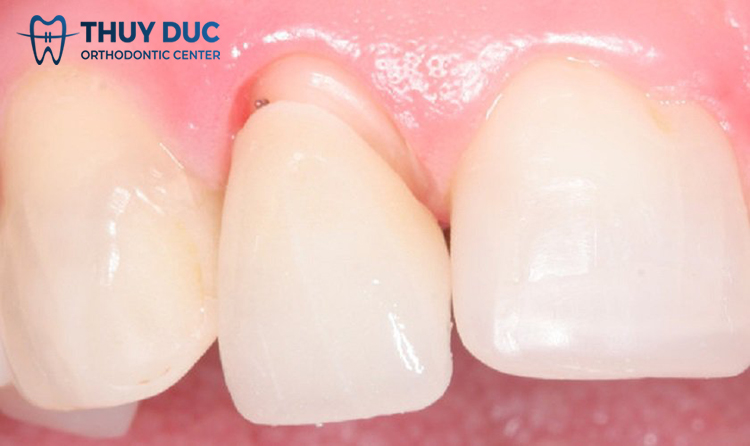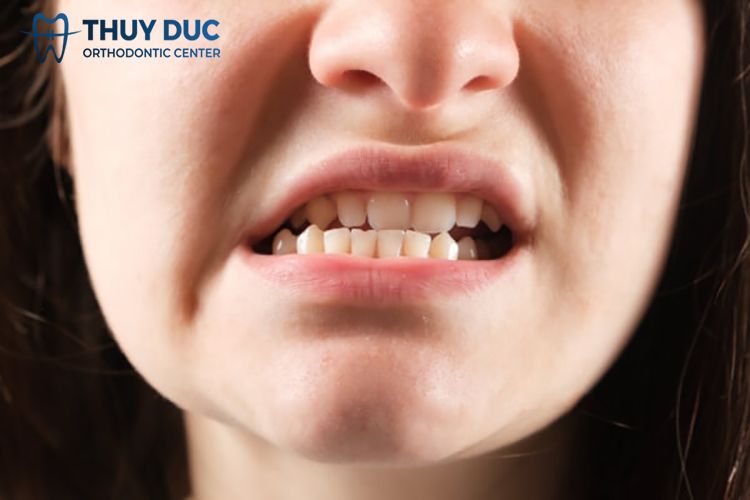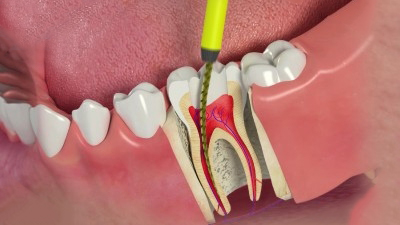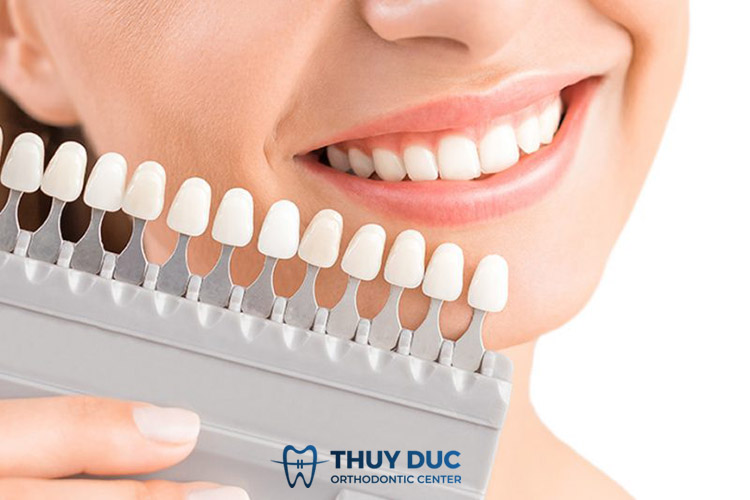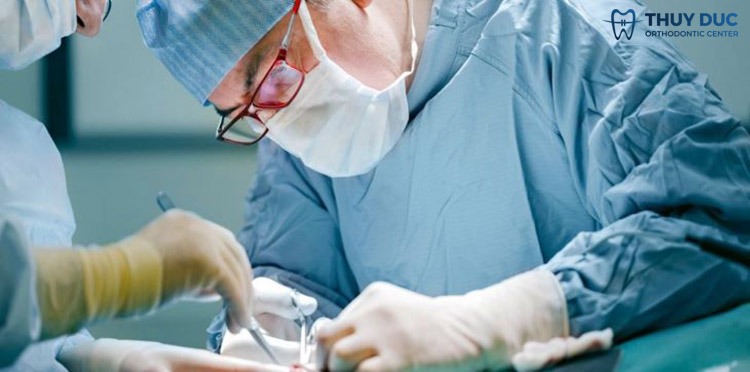Porcelain crowns are the optimal solution to give you beautiful, bright white teeth, but they also pose many potential risks, including bad breath. If you wonder if porcelain crowns cause bad breath, please refer to the following article for the answer.
Table of contents
Does porcelain crowns cause bad breath?
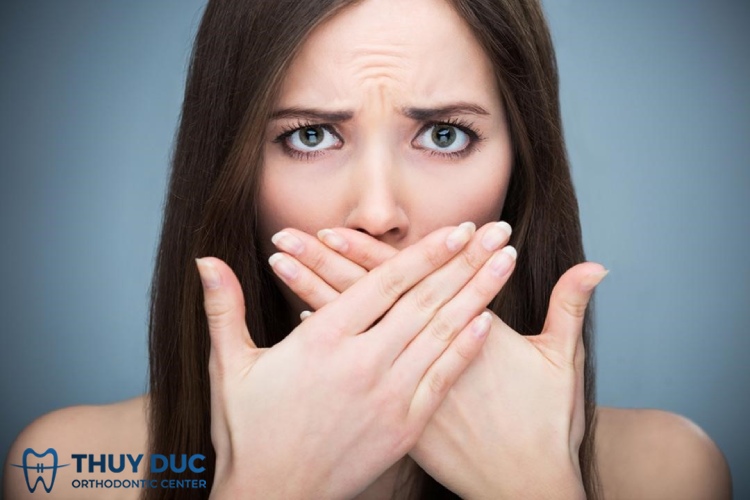
Bad breath with porcelain crowns is a condition that many people often encounter. Porcelain crown technique is to use porcelain crowns to fix the pre-ground real tooth posts. This method helps restore aesthetics for people with sparse teeth or mild underbites, damaged teeth, physical defects… bringing beautiful white teeth as desired.
Regarding the issue of whether porcelain crowns cause bad breath, experts say bad breath will not occur if the following conditions are met:
The dentist ensures correct instructions and correct technique during the process of performing this technique.
Skilled doctors with modern equipment.
After getting porcelain crowns, patients need to take care of their teeth and take proper oral protection measures.
Porcelain teeth are made from benign materials. When covered, they will not cause irritation to the gums or teeth. Patients need to go to reputable dental facilities to choose quality porcelain teeth.
Why do porcelain crowns cause bad breath?
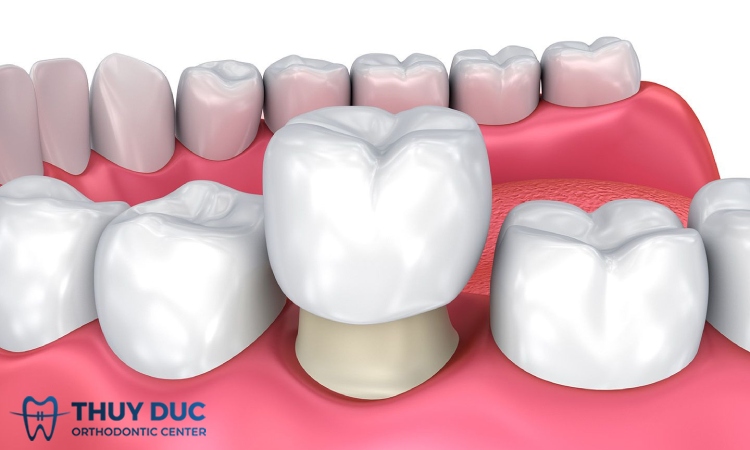
To answer the question “Do porcelain crowns cause bad breath?”, let’s find out the causes of this condition including:
The porcelain crown technique does not guarantee accuracy, creating gaps between the gums and porcelain teeth. When eating and drinking, food scraps fall into this crevice and accumulate over time, creating conditions for bacteria to grow and cause odors.
The cause of bacteria accumulation in the mouth and around the roots of teeth, causing bad odor in the mouth after porcelain crowns is due to the following factors: Not cleaning, taking good care of your teeth, not using mouthwash or dental floss To clean plaque left between teeth or not to have regular tartar removal…
When using porcelain teeth for a long time, under the influence of bacteria, saliva, and chemicals, some types of porcelain and metal used for coating are easily oxidized, thereby causing unpleasant odors.
Because the patient had bad breath before but did not treat it. After getting porcelain crowns, not cleaning thoroughly makes bad breath more serious.
Porcelain teeth are impacted strongly, making the teeth rough and cracked, but the patient does not detect it, allowing food and bacteria to stick and causing unpleasant odors.
In addition, some other causes of bad breath after dental crowns include tooth decay, mouth ulcers, dry mouth, stomach and digestive system diseases, sinusitis…
How to handle bad breath when wearing porcelain crowns
To overcome bad breath when wearing porcelain teeth, the patient first needs to see a doctor to be examined and find the specific cause, from which specific remedies are given as follows:
- If it is due to a technical error, the dentist will adjust the teeth or cover the patient with new porcelain teeth.
- If it is caused by other diseases, the patient needs to completely treat the disease to eliminate bad breath.
- For patients who are allergic to the metal ribs of porcelain teeth or have sensitive skin, the dentist can replace them with all-ceramic teeth so as not to cause any irritation to the patient.
Prevent bad breath when wearing porcelain crowns?
Patients should note the following to prevent bad breath from porcelain dental implants:
Use a fluoride toothpaste product with a soft-bristled toothbrush to brush your teeth at least twice a day. At the same time, remember to brush your teeth with proper technique but gently.
To avoid remaining bacteria and harming oral health, replace your toothbrush with a new one after 3 months of use.
To remove food debris from places your toothbrush can’t reach, use dental floss.
To clean the oral cavity, use additional mouthwash or saline. In addition, using a water flosser is also a very effective way to completely clean your teeth, while massaging your gums and improving gum health.
To avoid breaking or breaking porcelain teeth, limit chewing foods that are too hard or too chewy.
To avoid bite misalignment, you should practice chewing on both sides of the jaw, and perform chewing movements properly to help your teeth clean themselves.
Maintain the habit of dental check-ups 1-2 times a year, so the doctor can remove tartar, check general oral health and check the fit of porcelain teeth. Thereby, the doctor proactively handles timely when any abnormal signs occur to keep teeth clean and healthy.
